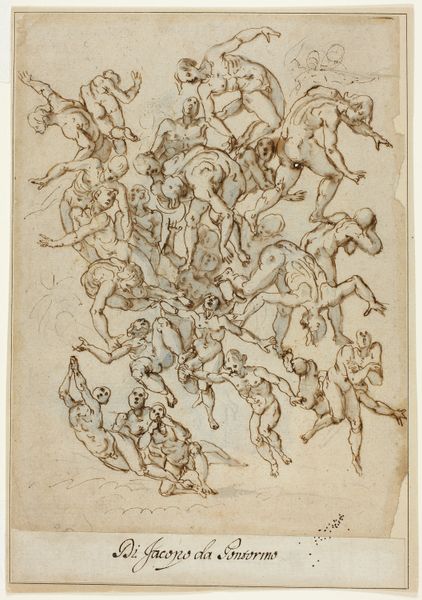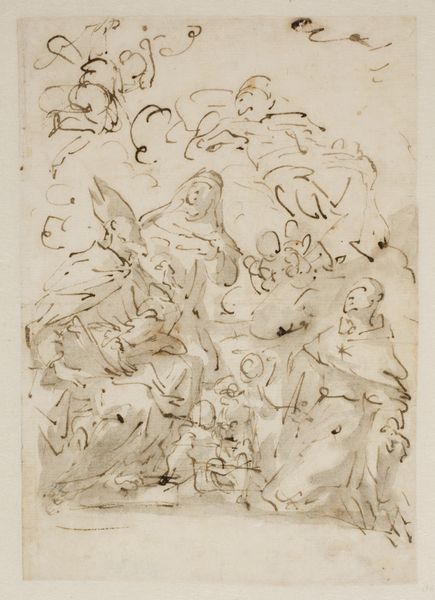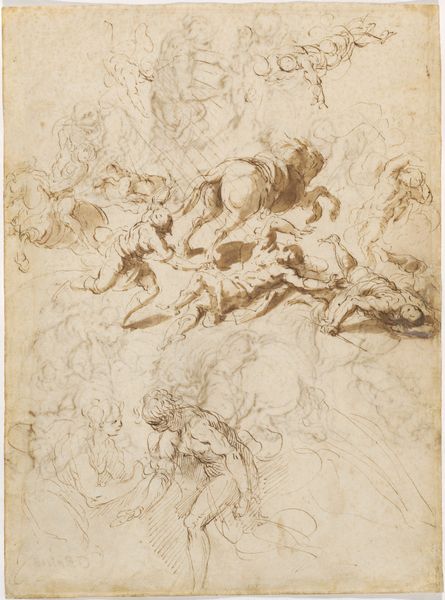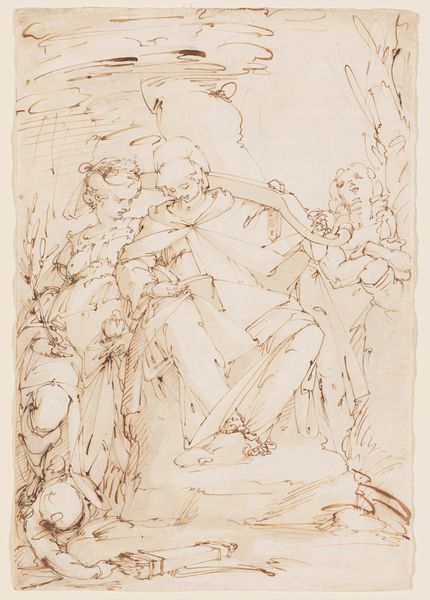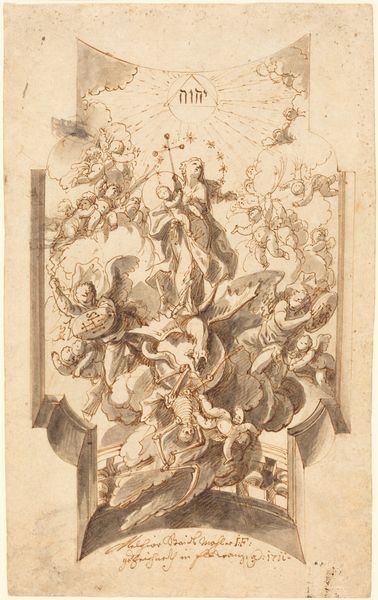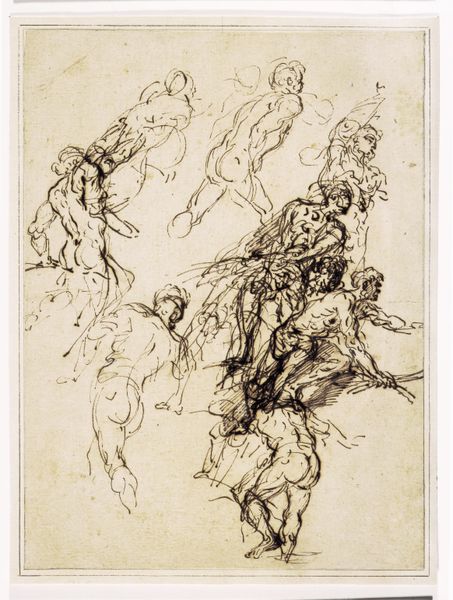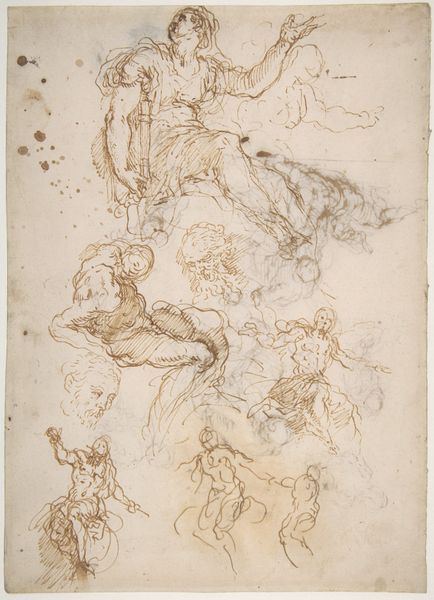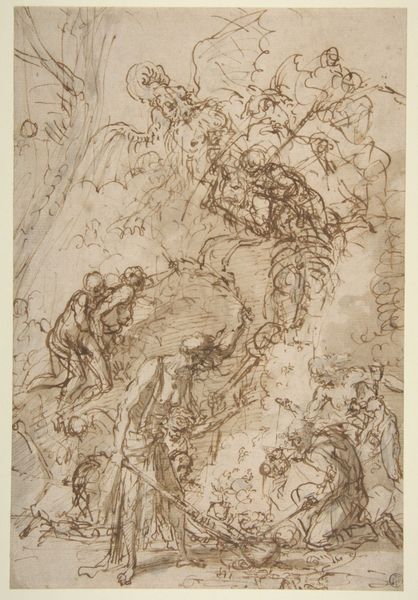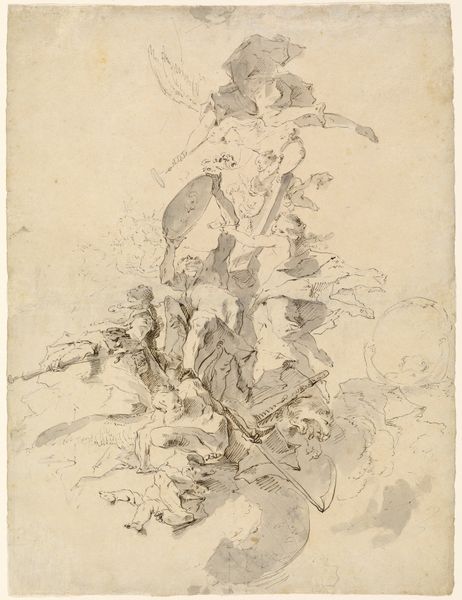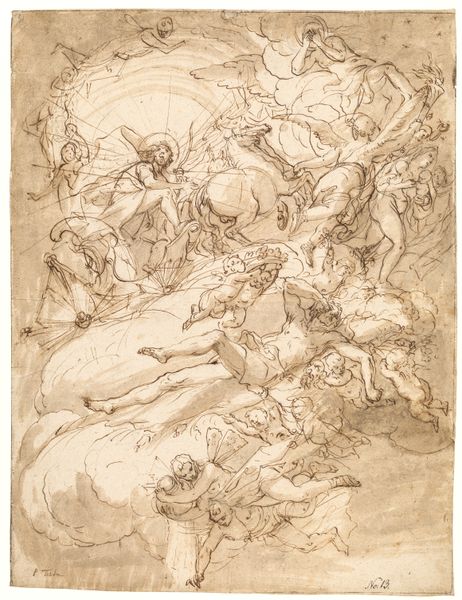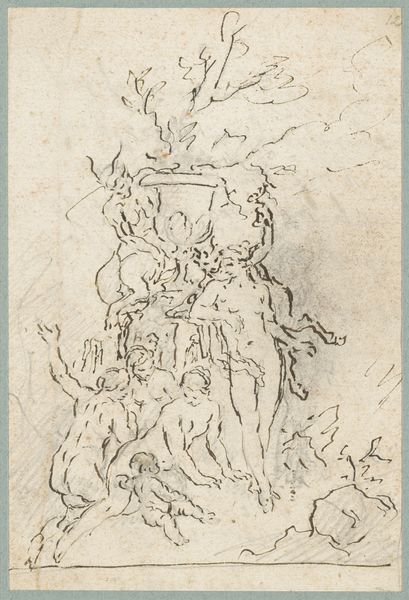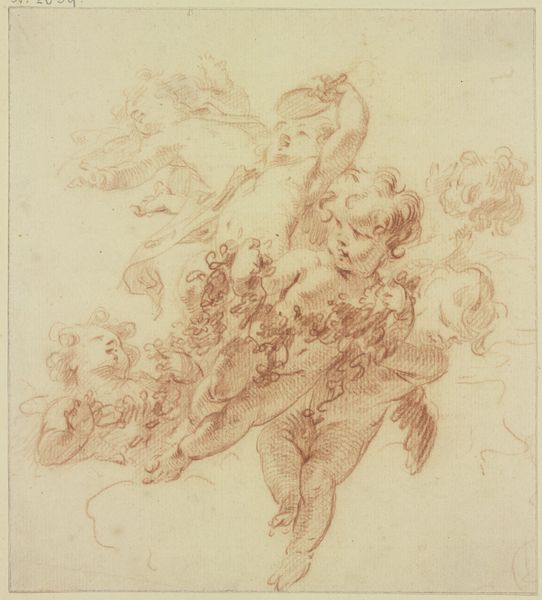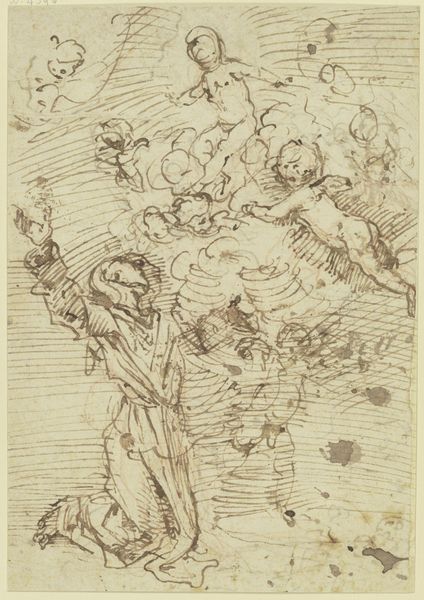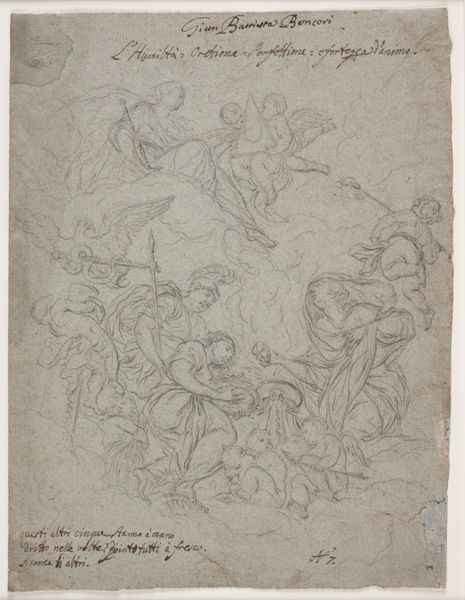
Fall of the Damned (recto); Sketches of Seated Saint John the Baptist (verso) n.d.
0:00
0:00
drawing, paper, ink, pen
#
drawing
#
narrative-art
#
pen drawing
#
etching
#
mannerism
#
figuration
#
paper
#
ink
#
pen
#
history-painting
Dimensions: 263 × 199 mm
Copyright: Public Domain
This drawing, made with pen and brown ink, with blue wash, by the Circle of Cigoli, likely dates to the late 16th or early 17th century. It illustrates the Fall of the Damned, a popular theme during the Counter-Reformation in Italy. Here, we see a mass of anguished figures tumbling downwards, driven by an avenging angel, likely a reference to the archangel Michael expelling Lucifer and his followers from Heaven. The image is striking for its raw emotional intensity and dramatic composition, reflecting the period's renewed emphasis on religious piety and the consequences of sin. Consider the cultural context: the Catholic Church, amidst challenges from the Protestant Reformation, used art to reinforce its doctrines. Artists were thus commissioned to create powerful, often terrifying, images of hell and damnation to inspire repentance and adherence to Church teachings. In understanding such works, we rely on historical texts, theological treatises, and records of artistic patronage to grasp the social forces behind their creation. The true meaning of art lies in its intricate relationship with its cultural origins.
Comments
No comments
Be the first to comment and join the conversation on the ultimate creative platform.
